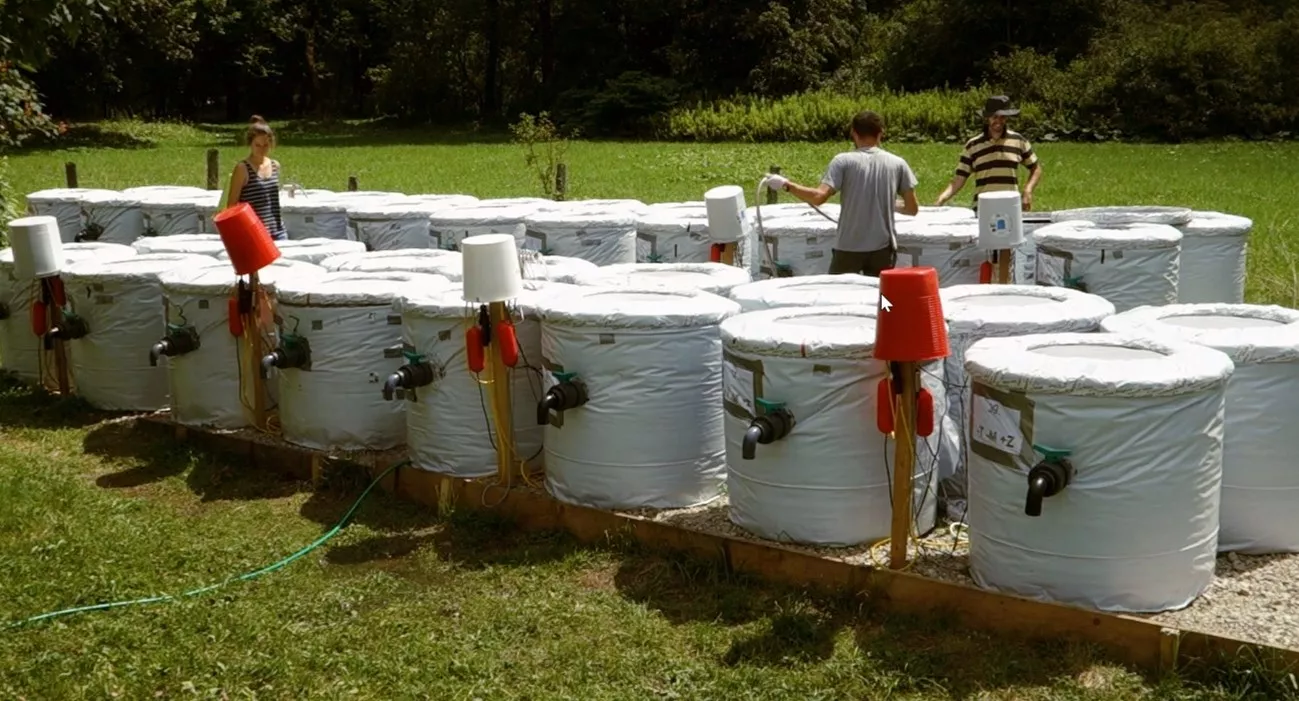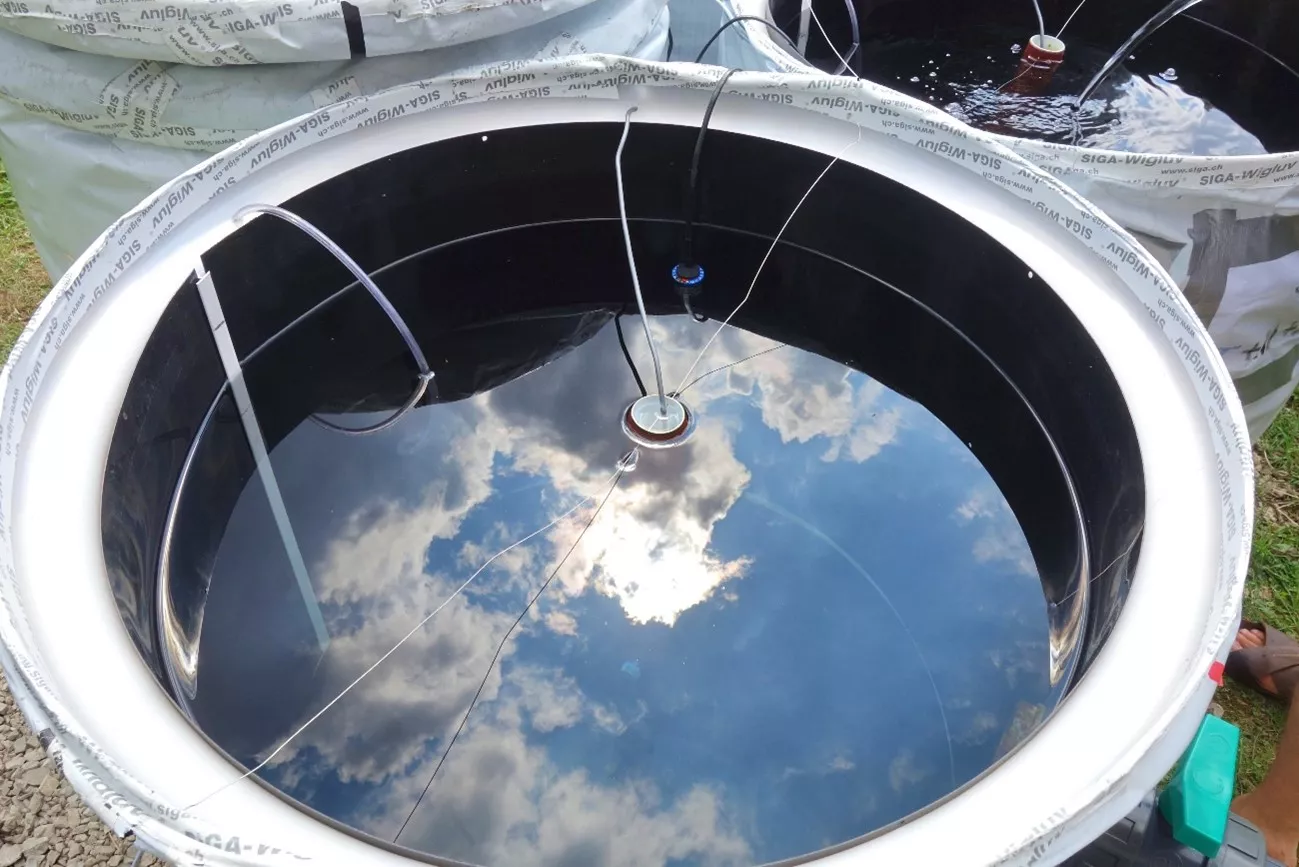Researchers from the Institute of Aquatic Ecology of the ELKH Centre for Ecological Research (CER) led by Csaba Vad, conducted a study in an international collaboration to explore the resilience of aquatic ecosystems to the negative impacts of heatwaves. They also investigated whether dispersal from surrounding habitats, i.e., the arrival of other species, could accelerate ecosystem recovery. During their experiment on plankton communities in mesocosms, the researchers found that the heatwave drastically reduced the biomass of plankton due to the negative impact on primary consumer zooplankton, such as water fleas. Dispersal from surrounding habitats had limited effect in this study, somewhat positively influencing only the growth of phytoplankton. As a result of the heatwave, both the composition and trophic structure of the communities changed, which could have long-term implications for ecosystem functioning. The study presenting the results was published in one of the leading international ecological journals, Global Change Biology.
The increasingly frequent and intense heatwaves associated with global climate change pose a significant threat to biodiversity, ecosystem functioning, and the ecosystem services provided to humans. Consequently, it becomes crucial to understand the mechanisms that affect the resilience of communities in the face of extreme temperature events, including their resistance to temperature stress and their subsequent recovery. This knowledge is essential for improved prediction and mitigation of biodiversity loss and its far-reaching implications. Moreover, it enables the application of effective strategies to adapt to climate change.
In a research led by Csaba Vad, researcher at the Institute of Aquatic Ecology of CER, an international research group investigated whether connectivity through dispersal facilitates ecosystem adaptation to heatwave-induced stress ("spatial insurance hypothesis"). The study, conducted over a period of one and a half months, took place in artificial lakes known as mesocosms. In these experimental systems, the processes occurring in natural ecosystems can be modeled much more realistically compared to laboratory conditions. Moreover, they allow for the isolated examination of individual stressors and underlying mechanisms, which would not be feasible in natural habitats due to their complexity.
According to the results, the heatwave led to a decrease in plankton biomass, primarily due to its negative impact on zooplankton, such as water fleas. In the case of a natural lake, for example, this could lead to temporary reduction in food sources available for fish or even the development of algae blooms, as these small microscopic organisms play an important role in regulating algae levels. The effect of dispersal from surrounding habitats in this experiment was relatively minor, and it was only evident in the faster post-heatwave growth of phytoplankton. The results showed that the community biomass returned to the undisturbed level regardless of dispersal. However, the composition and trophic structure of the community changed, which could potentially result in long-term alterations in ecosystem functioning.
Based on the experiment, it can be concluded that even a short heatwave of about one week can alter the species composition and interactions within aquatic ecosystems, potentially leading to long-term consequences. These effects can be further aggravated by the fragmentation of ecosystems resulting from habitat loss, increasing spatial isolation of remaining habitats and reducing the dispersal of organisms. Ecologists urge for further long-term research to understand the impacts of heatwaves and develop possible adaptation strategies.


The Austrian WasserCluster Lunz research institute's mesocosm system,
where the experiment was conducted
(Photos by Zsófia Horváth)
The research was carried out within the framework of the H2020 AQUACOSM project, with the support of H2020 AQUACOSM-plus and the National Multidisciplinary Laboratory for Climate Change.
Publication:
Vad Cs. F., Hanny-Endrédi A., Kratina P., Abonyi A., Mironova E., Murray D. S., Samchyshyna L., Tsakalakis I., Smeti E., Spatharis S., Tan H., Preiler C., Petrusek A., Bengtsson M. M. & Ptacnik R. (2023). Spatial insurance against a heatwave differs between trophic levels in experimental aquatic communities. Global Change Biology 29: 3054–3071. (IF2021: 13.211 | SCimago2022: D1)